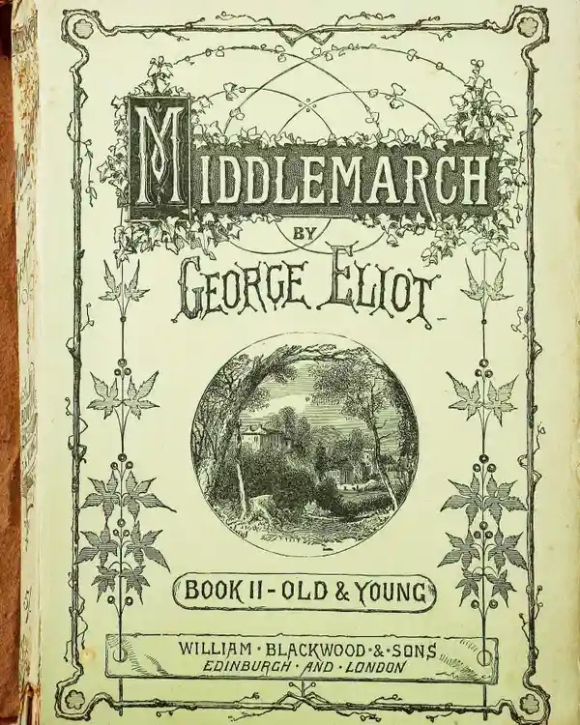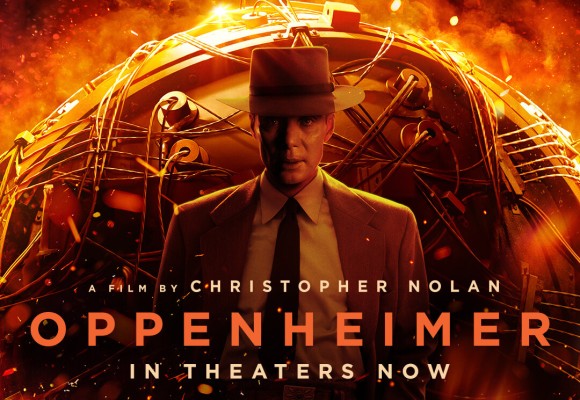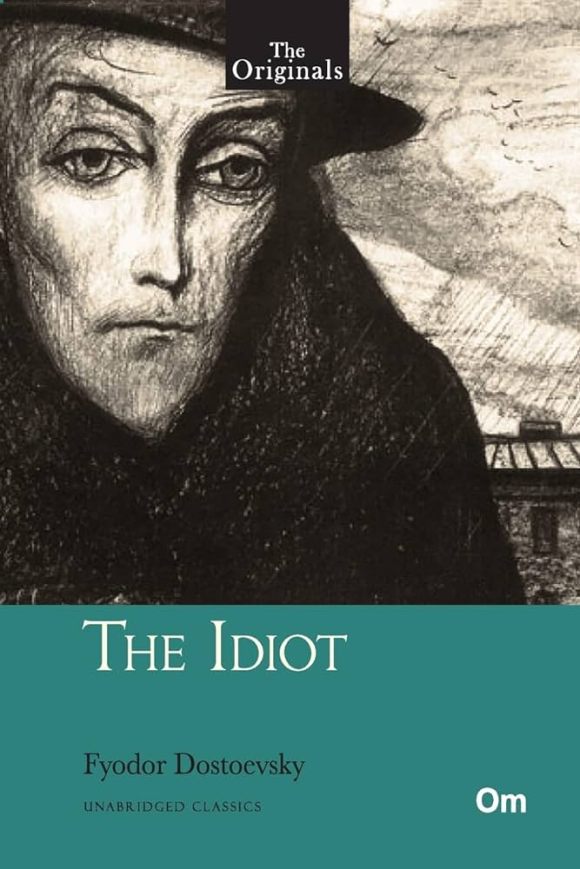I’ve tried only a handful of modern or postmodern novels; most of them leave me cold; several I’ve been unable to finish. They read like style for style’s sake, the narrative fragmented (Infinite Jest; Tristram Shandy), the characterisation cold (much of Amitav Ghosh’s work), the text deliberately unreadable. But Berlin Alexanderplatz, which I read a few weeks ago,has become one of my favourite novels. Even if you share my wariness of experimental literature, three salient features make this book a must-try: (1) At its core is a strong narrative, surprising in prospect, inevitable in retrospect; (2) Each of the book’s stylistic innovations and “asides” is entertaining, and also seems to complete the gestalt even if you can’t put your finger on why; and (3) these asides are woven into the narrative with a superb mastery of pace and proportion. In short, Berlin Alexanderplatz’s stylistic adventures don’t detract from its narrative, they bolster it. The book trades the deep foundation-stones of a traditional narrative – extensive backstory, exhaustive concrete detail – for weird and wonderful flying buttresses – studying one man’s psychology via a radiating analysis of his city, his nation, his era.
It’s 1927, and Great War veteran Franz Biberkopf (“Beaver Head”) has finished a four-year sentence in Tegel Penitentiary for manslaughtering his girlfriend Ida. He tries his hand at various livelihoods including vending tieholders, then nationalist newspapers. Eventually he falls in with a criminal gang. At first against his will, when he finds himself tricked into standing watch during a breakin. Then through a self-destructive compulsion to haunt Reinhold, the coldblooded villain who ruins his life. Finally through a fatalistic sense of penitence, when he decides to destroy Reinhold even if it means destroying himself. Finally Biberkopf undergoes death and resurrection in a process both gruesome in its graphic details (Doblin was a physician) and transcendental (a conversation between Franz’s soul and death). He spends some months incarcerated in a mental asylum, mute and anorexic, a suspect in the murder of another girlfriend. Then he rises, a new man, to live a new, absurdly banal life. Doblin summarises Franz’s transformation:
“Franz BBK [sic] did not walk down the same street with us. He ran pell-mell in the dark, he ran into trees, and the more he ran the more trees there were for him… When he struck a tree, he pressed his eyes shut in horror… [Finally he fell down.] In falling, he opened his eyes.”
Though Franz’s life is unusually eventful, this description of the psychology and consequences of an unexamined life is universal.

Berlin Alexanderplatz is an inverted bildungsromanz. A criminal who shows little remorse, a man with a surfeit of strength, sexuality, and worldly knowledge, dies and is reborn as a true man: a thinking creature. He makes and loses friends and fortunes. He loses everything, including life itself, and emerges with no grand revelation, simply the apparatus to survive. This is a coming-of-age story for a harsh, post-heroic age.
Berlin Alexanderplatz is aptly named: it’s a montage of Berlin 1927-1928, and Biberkopf’s life is merely the foreground figure in this many-stranded, crazy-quilted tapestry. The narrative voice is a chorus – or a cacophony, depending on your tolerance for ambiguity – featuring an intrusive didactic narrator, a voice that follows Biberkopf without really entering his head, a range of voices who drift through the narrative as it follows Biberkopf across town, and the epic voice that narrates several motifs and develops them into parallel-plane subplots. The novel shifts voice mid-paragraph, even mid-sentence, without ever obstructing legibility. Reading this book is like being stoned: your own locus of consciousness drifts between your present, your past, your fantasies, your neighbour, some point in between your neigbour and the universe-spirit and you – yet you always feel anchored to something more essential than geographical coordinates. Given the criticism I’ve read of the book’s 1931 translation, much credit for this tightrope-act between legibility versus vertiginous freedom must go to the 2018 Hofmann translation. Hofmann preserves the novel’s masterful balance between moment-to-moment spontaneity versus largescale structural intregrity. And he translates various Berliner dialects into forms of Cockey. A choice entertaining, felicitous, and fitting.
Doblin tosses in, apparently at random, bits of debris plucked from the hurricane that Weimar Germany: newspaper articles on bureaucratic proceedings, statistics on deaths and births in Berlin (incidentally binning the popular idea that “no Berliner is born in Berlin”), bits of conversation and whole songs courtesy unnamed pub clients, historical narrative of the Napoleonic wars, and, most evocatively, biblical motifs, each developed over several iterations, and woven subtly but unmistakeably into the main narrative. The book’s biblical motifs include: Abraham persuading his son to will his own murder by Abraham’s hands; and the psychedelic image of the whore of Babylon:
“There by the water sits the great Babylon, mother of harlots and of earth’s abominations. How she sits on a scarlet-covered beast, having seven heads and ten horns, visible, you must see it… She is drunken with the blood of saints, whom she has torn to pieces… Golden poisonous eyes, bulbous throat. She is giving you [as you approach her] the glad eye.”

This Berlin is ever-changing. Construction projects, including the metro, rend its bowels. It’s a metropolis drawing small-towners and eastern Europeans, among them several of the novel’s itinerant sex workers. It’s a city of crime petty and grand: petty theft, warehouse burglary, prostitution, money-laundering, and murder. It’s a city where sexual mores and gender roles are in flux. Franz is one of numerous men kept by their escort mistresses.
A contemporary reader may wonder how much politics to expect in this Weimar German novel. Not much. Doblin mentions in passing rightwing organ Volkischer Beobachter, and the national Socialists’ “love of order,” as well as the conflict between Bavaria and the Republic. The National Socialists or “nationalists” are mentioned once or twice; the communists more often. During Franz’s brief friendship with a communist, we’re exposed to some leftist rhetoric via an elderly party-member:
“Everybody understands that that talking shop [in the Reichstag] is no good for anything except pulling the wool over the people’s eyes – everybody except the so-called representatives of the working people… The high priests of state [don’t want to let us self-govern; they] want to trap us and train us into being the state’s beasts of burden… As Germans, we’re raised in the spirit of obedience… Before long it will be illegal for workers of any major industry to strike. They’ve slapped the guillotine of compulsory arbitration on you.”
But politics forms only one of the book’s numerous rich background strands. Biberkopf declares himself unpolitical. He tries on nationalist armbands to provoke a reaction; then he befriends a communist; then he forswears his interest in politics – which, revealingly for this era, began as mere restlessness.
While largely agnostic regarding the day’s politics, the book makes predicts catatrsophe when, in any age, the individual divorces himself from society, as Franz does. The book’s political astuteness originates largely in this cognisance of grand patterns:
“When there is a war on, and they enlist me, and I don’t know why, and the war is there even without me, then it’s my fault, and it serves me right.”
Some readers have found uncanny foreshadowing in the novel’s elaborate descriptions of the (then brand-new) industrial-scale transportation and slaughter of animals; or read the novel as a portrait of a nation’s spiritual decay. Certatinly crime, prostitution, tumult, depravity, and class chasms pervade Berlin Alexanderplatz: some of the factors that would eventually turn many Germans towards Nazism. But to read Berlin Alexanderplatz in this retrospective light is to do it injustice. It’s the story of a man, told through the story of his city – and it’s a monumental achievement.
The novel begins with a plot summary; so does each chapter. The novel’s omniscient narrator tells the reader what’s going to happen: in sentences aphoristic but literally acuurate. The narrative is so compelling that these summaries read like what evolutionary biologists call “costly signalling.” As the peacock’s functionally useless tail broadcasts to potential mates his superfluous vigour, so these summaries that give the plot away advertise the force of its spoiler-proof narrative.
Doblin’s unflinching intelligence pervades the novel, which is a morality play in disguise. He frequently apostrophises the reader. Towards the end: “Much misfortune comes of walking alone… You have to get used to listening to other people, because what others say concerns me. Then I see who I am and what I can take on. My battle is being fought on all sides of me, I have to pay attenion… The world is made of sugar and shit.”
Berlin Alexanderplatz is Doblin’s most famous novel, and I intend to read more of him. He’s one of three great writers I’ve re/discovered this year, the others being Mann and Hesse. Whether you’re looking for an examination of crime and decay, a multi-disciplinary origin-story of individual consciousness, or a landmark in modernism literature that has influenced generations of writers, or just a jolly good narrative – Berlin Alexanderplatz will change the way you read and think.
Read Berlin Alexanderplatz for free here. Read in soft copy to save paper.
Switching to soft-copy books has made my note-taking easier, my reading more critical, my library instantly accessible. Read better, save paper, spare your overflowing bookshelves, and save money too. Switch to soft copy today.









